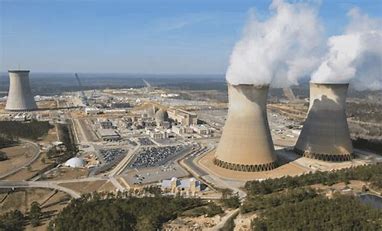
ATLANTA – Georgia Power has encountered additional delays in the nuclear expansion at Plant Vogtle that will delay the project an additional three to six months.
The Atlanta-based utility announced Thursday that the first of two new reactors at the plant south of Augusta won’t be completed until the fourth quarter of this year or the first quarter of 2023. The second reactor will follow in the third or fourth quarter of next year under the revised schedule.
The delays will add $920 million to the project’s cost, more than doubling the original projected price tag of $14 billion when the Georgia Public Service Commission first approved the project in 2009.
While the first new reactor was 99% complete as of Jan. 31 and the entire project was 96% complete, detailed documentation required by the Nuclear Regulatory Commission is holding up the process.
“Our priority is, has been and will continue to be bringing Vogtle Units 3 & 4 safely online – to ‘get it right’ – so that we can provide Georgia with a reliable carbon-free energy resource for the next 60 to 80 years,” Georgia Power spokesman Jeff Wilson said Friday.
The Vogtle expansion has been hit with a series of scheduling delays and cost overruns since work began, prompting environmental and consumer advocates to criticize the project as a waste of money that should have been spent pursuing renewable energy.
Key factors in the delays were the bankruptcy of original prime contractor Westinghouse Electric and, later, disruptions in the schedule due to the impact of COVID-19 on the construction workforce.
As a result of the latest delay, the utility partners bankrolling the project – including Oglethorpe Power, the Municipal Electric Authority of Georgia (MEAG) and Dalton Utilities – must vote by March 8 on whether to continue construction. Georgia Power already has voted to complete the project, Wilson said.
“Building new nuclear units is a complex process – and building the first new nuclear units in the U.S. in more than 30 years makes the process that much more complex,” he said.
“We have had to re-establish America’s nuclear energy supply chain and talent pipeline to ensure nuclear quality construction as well as work through the extensive nuclear quality documentation needed to bring new units online for the first time in three decades.”
This story is available through a news partnership with Capitol Beat News Service, a project of the Georgia Press Educational Foundation.
